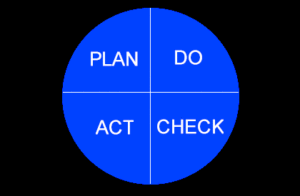Hudson Valley Regional EMS Council Quality Improvement Page
The purpose of a Quality Improvement (QI) program is to assist EMS Providers, Medical Control Hospitals, EMS Agencies and other system participants with a mechanism to evaluate the Emergency Medical System of a given area. The system-wide QI program of the Hudson Valley is designed to ensure continuous improvement in pre-hospital performance and quality patient care to the residents and visitors of the Hudson Valley Region.
A system-wide QI program incorporates methods of evaluation composed of structure, process, and outcome evaluations to focus on improvement efforts, interventions to decrease the causes, and steps to improve the overall process.
From Article 30 of the New York State Public Health Law:
Section 3006. Quality Improvement Program
- 1. By January first, nineteen hundred ninety-seven, every ambulance service and advanced life support first response service shall establish or participate in a quality improvement program, which shall be an ongoing system to monitor and evaluate the quality and appropriateness of the medical care provided by the ambulance service or advanced life support first response service, and which shall pursue opportunities to improve patient care and to resolve identified problems. The quality improvement program may be conducted independently or in collaboration with other services, with the appropriate regional council, with an EMS program agency, with a hospital, or with another appropriate organization approved by the department. Such program shall include a committee of at least five members, at least three of whom do not participate in the provision of care by the service. At least one member shall be a physician, and the others shall be nurses, or emergency medical technicians, or advanced emergency medical technicians, or other appropriately qualified allied health personnel. The quality improvement committee shall have the following responsibilities:
- (a) to review the care rendered by the service, as documented in prehospital care reports and other materials. The committee shall have the authority to use such information to review and to recommend to the governing body changes in administrative policies and procedures, as may be necessary, and shall notify the governing body of significant deficiencies;
- (b) to periodically review the credentials and performance of all persons providing emergency medical care on behalf of the service;
- (c) to periodically review information concerning compliance with standard of care procedures and protocols, grievances filed with the service by patients or their families, and the occurrence of incidents injurious or potentially injurious to patients. A quality improvement program shall also include participation in the department’s prehospital care reporting system and the provision of continuing education programs to address areas in which compliance with procedures and protocols is most deficient and to inform personnel of changes in procedures and protocols. Continuing education programs may be provided by the service itself or by other organizations; and
- (d) to present data to the regional medical advisory committee and to participate in system-wide evaluation.
To ensure compliance with Article 30, and to assist in maintaining high standards of care, we would ask that your QA/QI Plan be updated on a regular basis, and if your plan is greater than five (5) years old, we will be asking for a new one!
To receive a copy of the Regional Quality Improvement Guidelines, please Click Here or call the Regional Office at (845) 245-4292
Please direct any questions regarding Regional Quality Improvement issues to the Hudson Valley Regional EMS Council Quality Improvement Coordinator atqaqi@hvremsco.org
For further information on Quality Improvement processes contact the following websites:
- A Leadership Guide to Quality Improvement for EMS Systems – www.nhtsa.dot.gov/people/injury/ems/leaderguide/index.html
- Baldrige National Quality Program – www.quality.nist.gov
- National EMS-C Data Analysis Resource Center – http://www.nedarc.org/nedarcCanHelp/whoIsNEDARC.html
- NYS DOH Quality Improvement for Prehospital Providers
“Quality Improvement is the organized creation of beneficial change; the attainment of unprecedented levels of performance…a breakthrough!”
– James N. Eastham Jr., ScD

